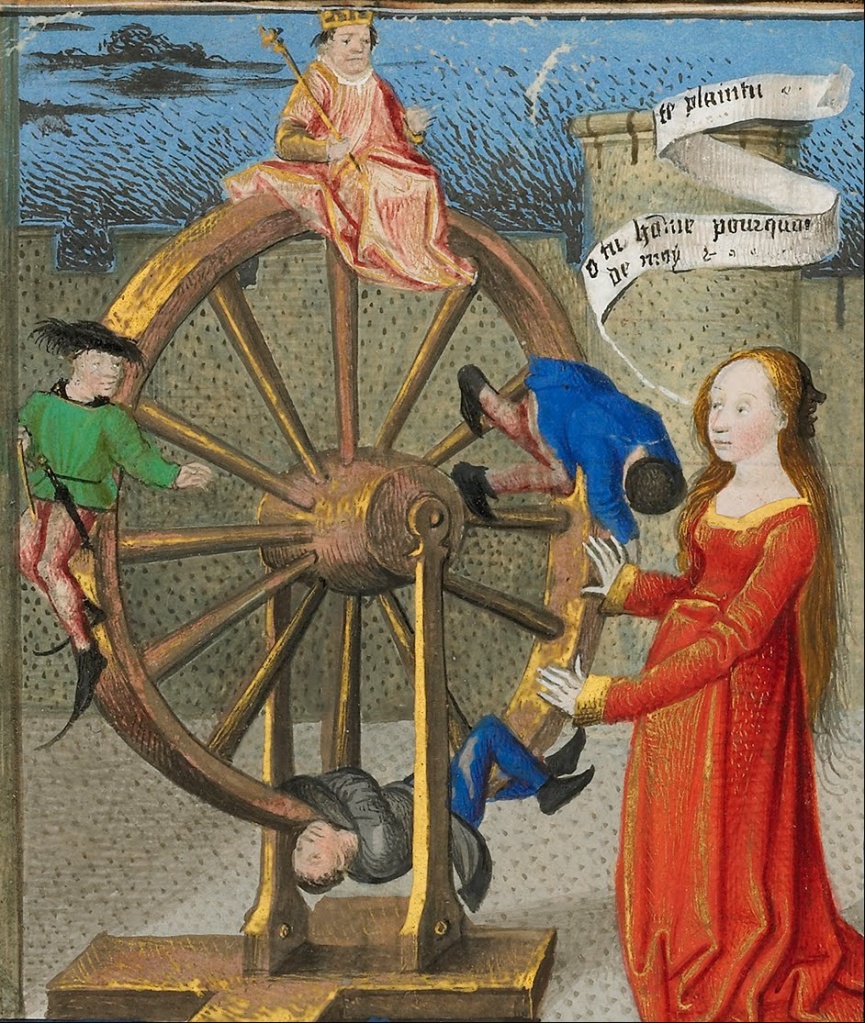I must make an admission,…I never could understand how it’s possible to love one’s neighbors. In my opinion, it is precisely one’s neighbors that one cannot possibly love. Perhaps if they weren’t so nigh…(236).
Ivan’s confession above is true, he holds hatred in his heart for his closest neighbors, his father and brother Dmitri who are driven by their sensual lusts. But confessing the truth does not alleviate his conscience from God’s command that he must love his father and brother. His affection for Ivan is most likely another witness to him of how it ought to be.
Ivan tells Alyosha regarding Fyodor and Dmitri, “… viper will eat viper, and it would serve them right (141).” Here he slips and makes a judgment on the behavior of his family, but knows that to speak of it would be to disprove his own moral theory that “all is permitted.” Ivan is a double-minded man, unstable in all his ways, for he cannot sincerely live out his own beliefs. He “shifts,” as Father Zosima states, his “own laziness and powerlessness onto others,” and the end of Ivan will be to share “in Satan’s pride and murmuring against God (320).”
Furthermore, he hates Smerdyakov most when he follows his worldview best. Even Smerdyakov desires the companionship of the guilty, but Ivan’s will is to refuse this to him. It is not to be as Ivan wishes, for he too will feel the avenger – his own deep conscience.
The next fury, that of confession is misused in that we can’t help but desire to “tell” what we’ve done or what we think. If we have confessed our sins properly with a repentant heart, then we will not feel the need to repeat it to others for He is just to forgive us of those sins and our conscience is clear. But when we have not properly repented we retell our story a multitude of times in false humility and with some mendacity. Our goal is to seek the pity of our listeners perhaps and sometimes to manipulate them into confessing their sins as we are seeking guilty companions. This was the case of Katerina’s multitudinous confessions to Grushenka in front of Alexei.
When confession is done properly and for the right motives, it frees us. To have a clear deep conscience is compared to “paradise” in The Brothers Karamazov. Here is an excerpt from the forum by Susan in relating Ivan’s need for confession and reconciliation:
Ivan seems reminiscent of the mysterious visitor [to] Zossima. He [the visitor] had a terrible secret and he had to tell everyone his secret to escape his isolation and to find brotherly communion. He did so at great consequence but it freed him to be a father and husband. Even though he was not believed he found paradise, “Paradise is hidden in each one of us, it is concealed within me, too, right now, and if I wish, it will come for me in reality, tomorrow even, and for the rest of my life” (Dostoevsky 303). This is played out with Ivan as well. Ivan and the Mysterious visitor had “proof” of their crime, but no one believed them.
The third fury, that of atonement is the knowledge of a debt. Again, when we refuse to  pay, it tends to exact higher and higher costs from us as we up the ante. This cycle is seen when Dmitri, thinking that he had murdered Grigory, piles on his transgressions in preparation to pay his debt with his own life. Atonement is abated in many through acts of self suffering, but this is faux atonement and will not suffice. In the end we punish ourselves more and those around us. We have an innate sense that we must pay the debt. Dostoevsky wrote in a letter to the publisher regarding Crime and Punishment that “legal punishment inflicted for a crime intimidates a criminal less than the lawmakers think, partly because he himself morally demands it.”
pay, it tends to exact higher and higher costs from us as we up the ante. This cycle is seen when Dmitri, thinking that he had murdered Grigory, piles on his transgressions in preparation to pay his debt with his own life. Atonement is abated in many through acts of self suffering, but this is faux atonement and will not suffice. In the end we punish ourselves more and those around us. We have an innate sense that we must pay the debt. Dostoevsky wrote in a letter to the publisher regarding Crime and Punishment that “legal punishment inflicted for a crime intimidates a criminal less than the lawmakers think, partly because he himself morally demands it.”
Reconciliation, Continue reading →










